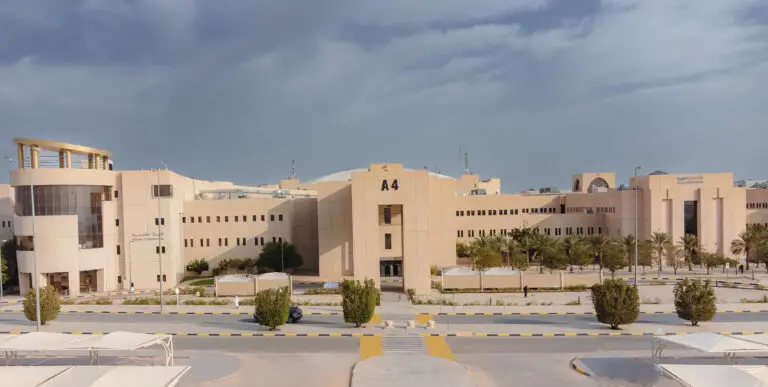
-
Dean of the college: Dr.. Dr. Fahad bin Nasser bin Abdullah Alsunaidh
-
Office: Main Building: B1-T056
-
Phone number: 0163020355
-
e-mail: enc@qu.edu.sa
Vision
A college of regional excellence in engineering education and scientific research, supporting the Kingdom's sustainable development.
Mission Statement
The College of Engineering at Qassim University seeks to provide advanced and accredited engineering education to meet the needs of the labor market and provide community and research services that support sustainable development in the Kingdom and contribute to building a knowledge economy.
About
The College of Engineering at Qassim University was established in 1423 AH (2002 AD), and is considered one of the leading scientific colleges, as all its programs have received national accreditation from the Education and Training Evaluation Commission, ABET, ASIIN and the European Network for Accreditation of Engineering Education. It includes the departments of electrical, mechanical, and civil engineering, and aims to prepare qualified engineers who meet the needs of the labor market and contribute to the sustainable development of the Kingdom. The college strives for excellence in engineering education and scientific research, and offers graduate programs such as the Master of Renewable Energy Engineering, Electrical Engineering, Civil Engineering, and Mechanical Engineering, in addition to its participation in community service through research and consultancy courses.
Objectives
First: Educational goals:
1. Preparing graduates to work successfully as engineers in the public and private sectors.
2. Preparing graduates to advance their careers through self-education and graduate studies.
3. Preparing graduates for professional leadership positions.
4. Preparing graduates for effective participation in sustainable development in the Kingdom of Saudi Arabia.
II: Research Objectives:
1. Building bridges of research cooperation between the college and industry, energy and construction organizations, in order to serve the development of these organizations.
2. Establishing research centers at the college that contribute to the development of scientific research and support researchers, including academics and graduate students, from inside and outside the university.
3. Offering graduate programs that focus on research aspects to serve the Saudi community.
Third: Community Service Goals
1. Supporting and contributing to the various university committees such as the Scholarship and Training Committee, the Teaching Assistants Committee, the Scientific Council, and others.
2. Contributing, in cooperation with the Deanship of Community Service at the university, to the development of the engineering profession by providing courses and workshops for engineers and technicians in various engineering specialties.
3. Conducting engineering studies and field surveys, and providing technical advice, to contribute to solving community issues.
4. Conducting standardized tests on installations, engineering systems, equipment, machinery, devices and materials.
